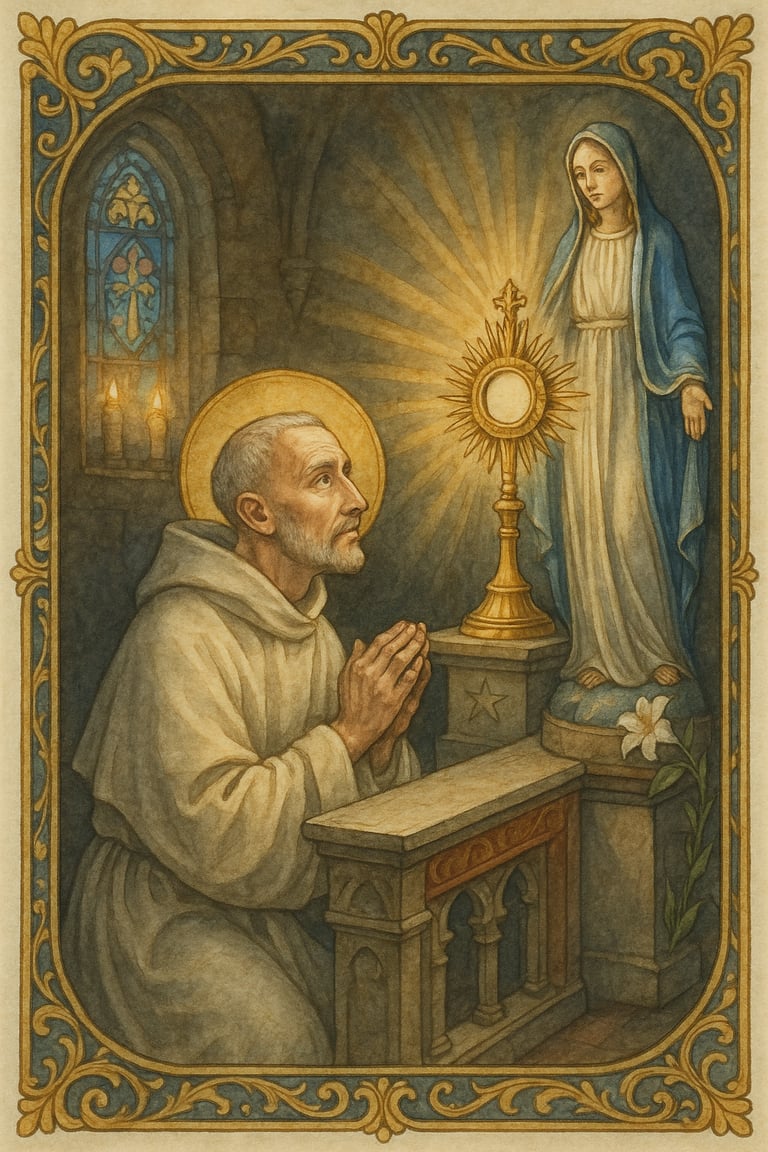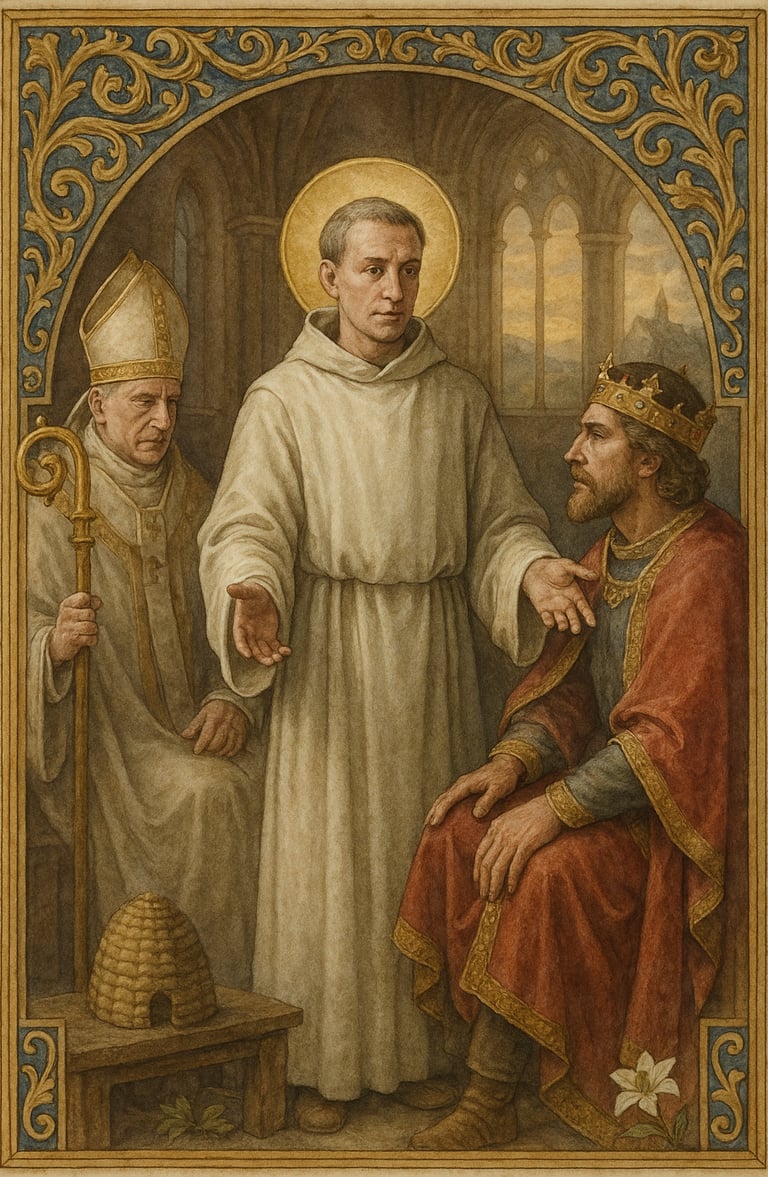Saint Bernard of Clairvaux: The Honey-Sweet Doctor
Feast Day August 20 | Doctor of the Church, reformer, mystic, Marian devotee
Halo & Light Studios
8/20/20253 min read


Click Link for a reel of Daily Dose of Saints and Faithful Art:
https://youtube.com/shorts/IY4idjiC2xQ
The 12th century was a time of turmoil and transformation in Christendom. Kings rose and fell, heresies threatened the unity of the Church, and new religious movements sought renewal. Into this world stepped Saint Bernard of Clairvaux (1090–1153), a man whose eloquence was so profound that his words were compared to flowing honey. Both mystic and reformer, Bernard left a legacy that still nourishes the Church today.
Bernard was born in 1090 at Fontaines-lès-Dijon, France, into a noble family. His upbringing was privileged, but his heart longed for God rather than power. At twenty-two, he made a radical decision: to enter the newly founded Cistercian Order, which sought to restore the simplicity and austerity of the Rule of St. Benedict. His zeal was contagious—thirty companions, including several of his brothers, followed him into the monastery.
In 1115, Bernard was sent with twelve monks to found a new community in a remote valley. He named it Clairvaux, meaning “Valley of Light.” Despite its harsh beginnings of poverty and physical hardship, Clairvaux soon became a beacon of reform. Vocations poured in, and Bernard’s reputation for holiness spread throughout Europe. By the time of his death, the Cistercian family had grown to nearly 350 monasteries, many of them influenced directly by his example.
Though Bernard lived the life of a monk, his influence extended far beyond cloister walls. He was a mystical theologian, deeply in love with Christ. His Sermons on the Song of Songs are considered some of the most beautiful writings of Christian mysticism, unfolding the intimate love between God and the soul.
Bernard’s spirituality was Christ-centered, emphasizing humility and reliance on grace. He wrote: “The measure of love is love without measure.” His words reveal not just theological clarity but a heart aflame with divine love.
Equally significant was his devotion to the Blessed Virgin Mary. He promoted her as Mediatrix and Advocate, calling her the Stella Maris—the Star of the Sea—guiding Christians safely to her Son. Through Bernard, Marian devotion blossomed across Europe, shaping Catholic prayer for centuries.
Bernard was not content to remain silent in the face of error. He opposed the teachings of Peter Abelard and other theologians whose ideas threatened the orthodox faith. He defended the doctrine of Christ’s full divinity and humanity, ensuring fidelity to the Nicene Creed during an era of theological unrest.
He also played a decisive role in the wider Church. His counsel was sought by bishops, kings, and even popes. When schisms arose, Bernard defended the true pope, Innocent II, helping to restore unity. Later, he was commissioned to preach the Second Crusade in 1146. Though he preached with fiery eloquence and inspired thousands, the campaign ended in failure—a sorrow that weighed heavily on him. Yet even in disappointment, Bernard’s humility and trust in God shone forth.
Saint Bernard died on August 20, 1153, at Clairvaux, surrounded by his monks. Canonized just twenty-one years later in 1174, he was declared a Doctor of the Church in 1830 by Pope Pius VIII. His title, Doctor Mellifluus (“the Honey-Sweet Doctor”), honors the beauty and sweetness of his writings, which continue to inspire the faithful.
Bernard’s legacy is vast: he was a monastic reformer, a theological mystic, a preacher of Christ’s love, and a devoted son of Mary. He stands as a reminder that holiness does not mean fleeing the world entirely but transforming it through faith, wisdom, and love.
In our own time, when the world is filled with noise, distraction, and confusion, St. Bernard calls us back to the essentials: humility, prayer, and love without limits. He teaches us that true reform begins not in politics or institutions, but in the heart that surrenders wholly to Christ.
As he once wrote: “What we love we shall grow to resemble. If we love Christ, we shall be Christ-like.”


